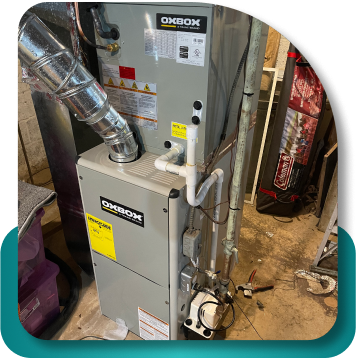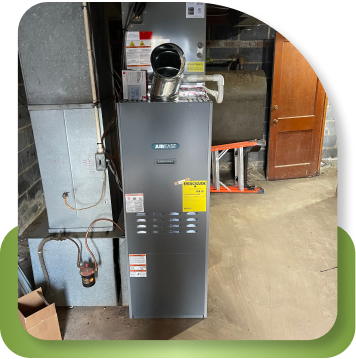Expert heating installation in Annapolis, MD is a great way to increase your comfort while lowering your wintertime heating bills. A new system will even increase the value of your home. Our residential heating replacement team is here to assist with choosing the ideal system to meet your budget and needs.
Heating & Furnace Replacement in Annapolis, MD
On Replacements and New System Installations

Expert Heating Installation in Annapolis
New furnace installation can be a fun and overwhelming process all wrapped into one. There’s no doubt that there are many different types of heating systems out there to choose from. One of the most popular on the market today due to its affordability and wide marketplace availability is the furnace.

- Excessive heating bills
- Uneven heating
- Higher than normal energy bills
- A furnace over 15 years old
When selecting a new furnace for your home, one important thing you want to consider is its overall heating capacity. If you get a furnace that’s too big, it will waste a lot of excess energy and drive up your energy bills. If you get a furnace that’s too small, it won’t be able to heat your home to your desired temperature. Fortunately, our helpful HVAC technicians can assess your home to determine the appropriate heating capacity for your new furnace.
Another factor to consider is the type of fuel that your furnace will use. Furnaces can run on electricity, propane, natural gas, or even heating oil. In general, natural gas tends to be the cheapest fuel to purchase. However, it’s crucial to note that natural gas is not available everywhere in the country. It’s a good idea to consider the cost of each type of fuel to determine which one is going to be the most cost-effective choice for your new furnace.
Another factor to consider is the overall operating efficiency of the furnace. Electric furnaces are the most efficient of the bunch. Furnaces that run on natural gas, propane, or heating oil can have a standard or high-efficiency operation depending on the specific system that you purchase. Standard-efficiency models operate at around 80 to 85% efficiency, while high-efficiency models operate at 90 to 95% efficiency.
Residential Heating Replacement Specialists
JJ Heating & Cooling Company offers residential heating replacement services to the Annapolis community. We’re available 24/7 for all your emergency needs and offer quality products like Goodman. Since 2017, our HVAC technicians always take a family-oriented approach by delivering top-notch workmanship and only the highest quality products on the market. We’re happy to offer convenient online appointment booking and honest replacement quotes.
If you need expert heating installation services in Annapolis, call the professionals at JJ Heating & Cooling Company today for assistance.
©2025 JJ Heating & Cooling Company. All Rights Reserved. License: Maryland: 109737 County: 6205. Privacy Policy. Web Design and Internet Marketing by RYNO Strategic Solutions.

